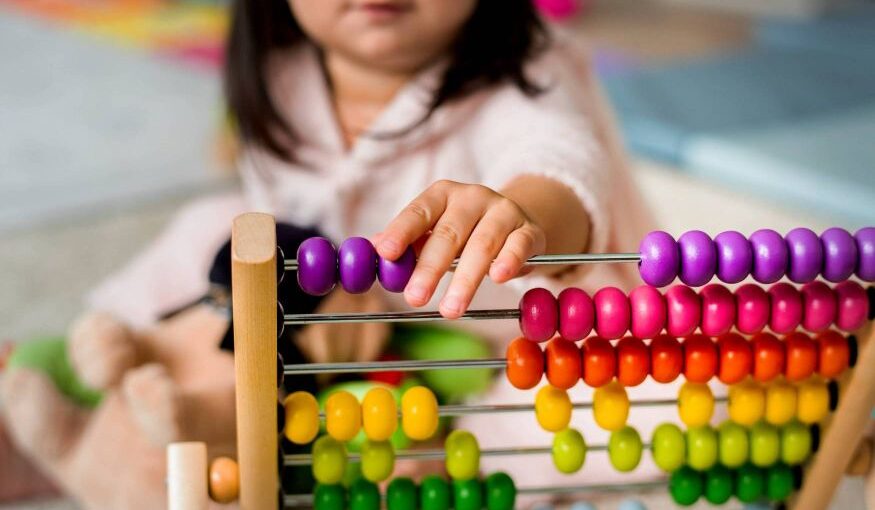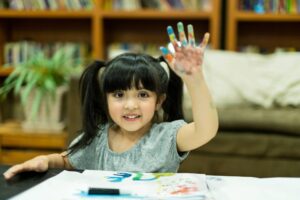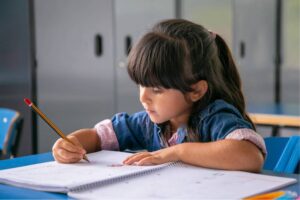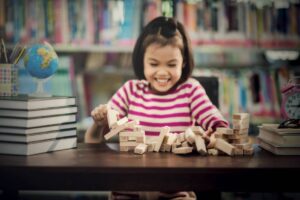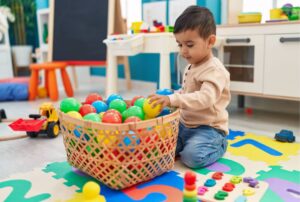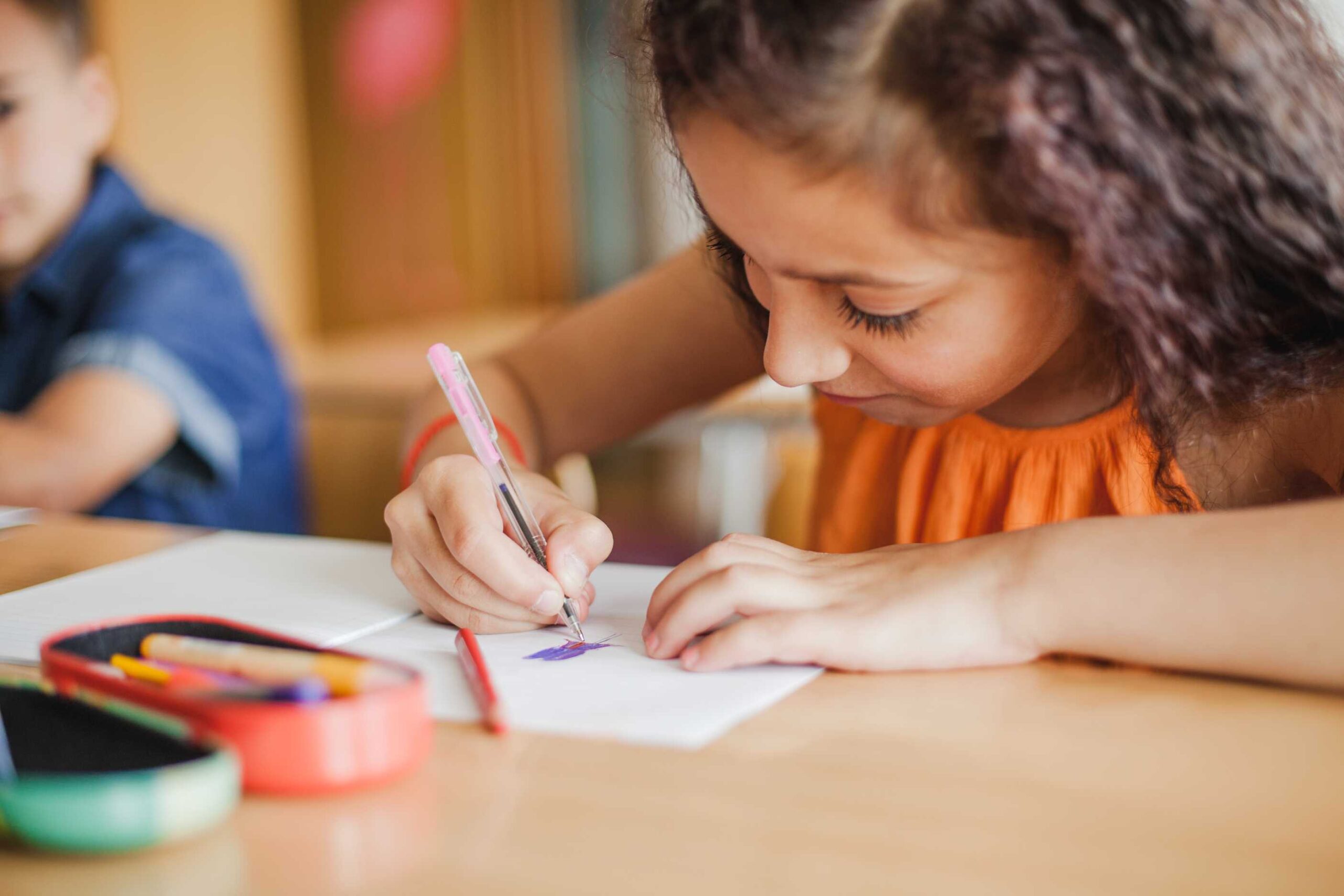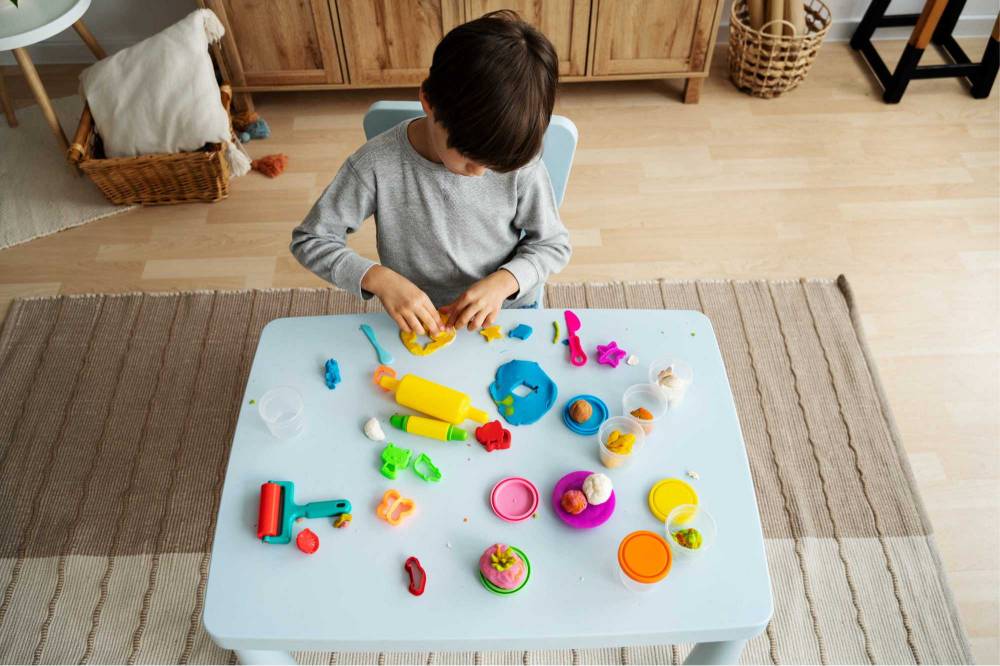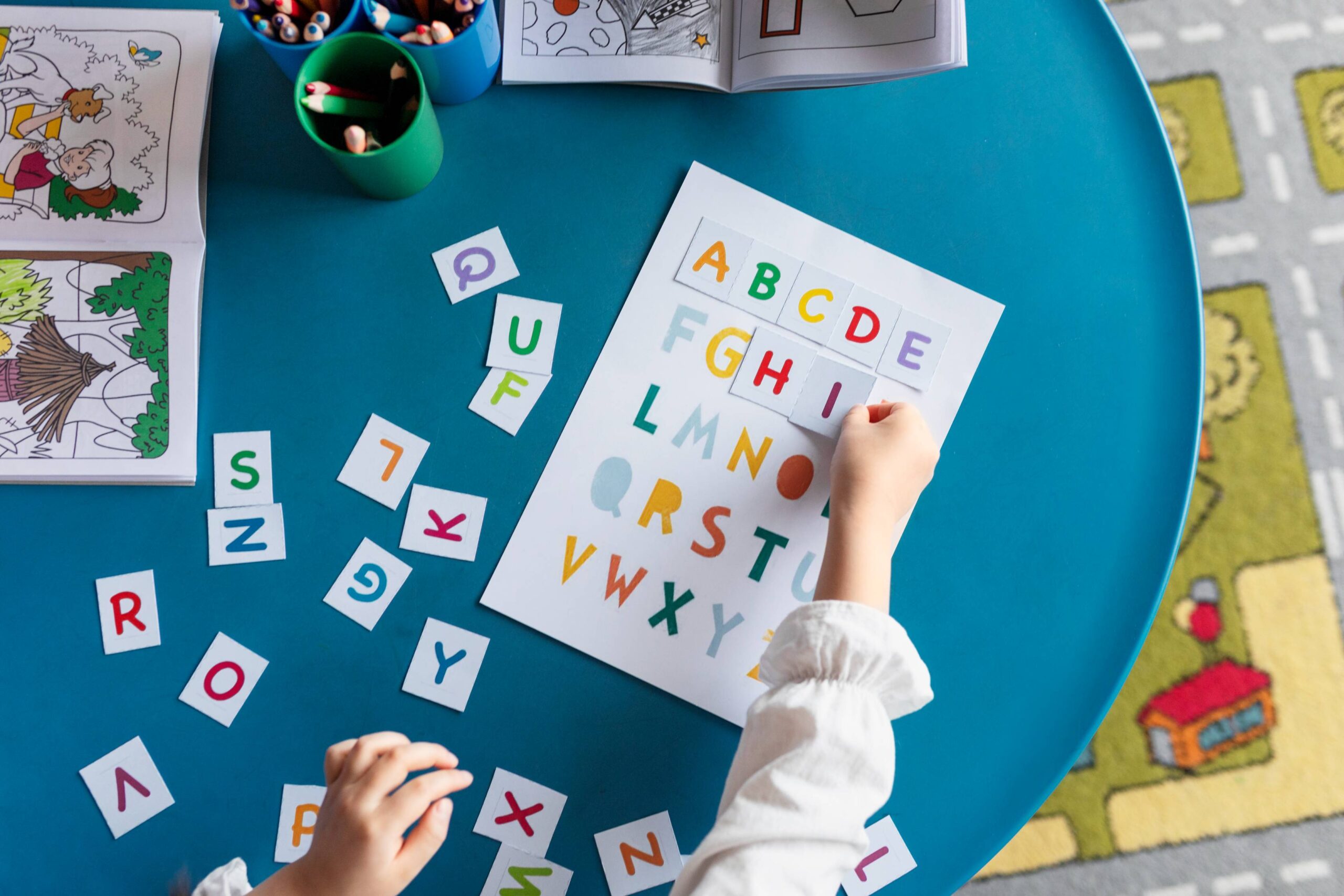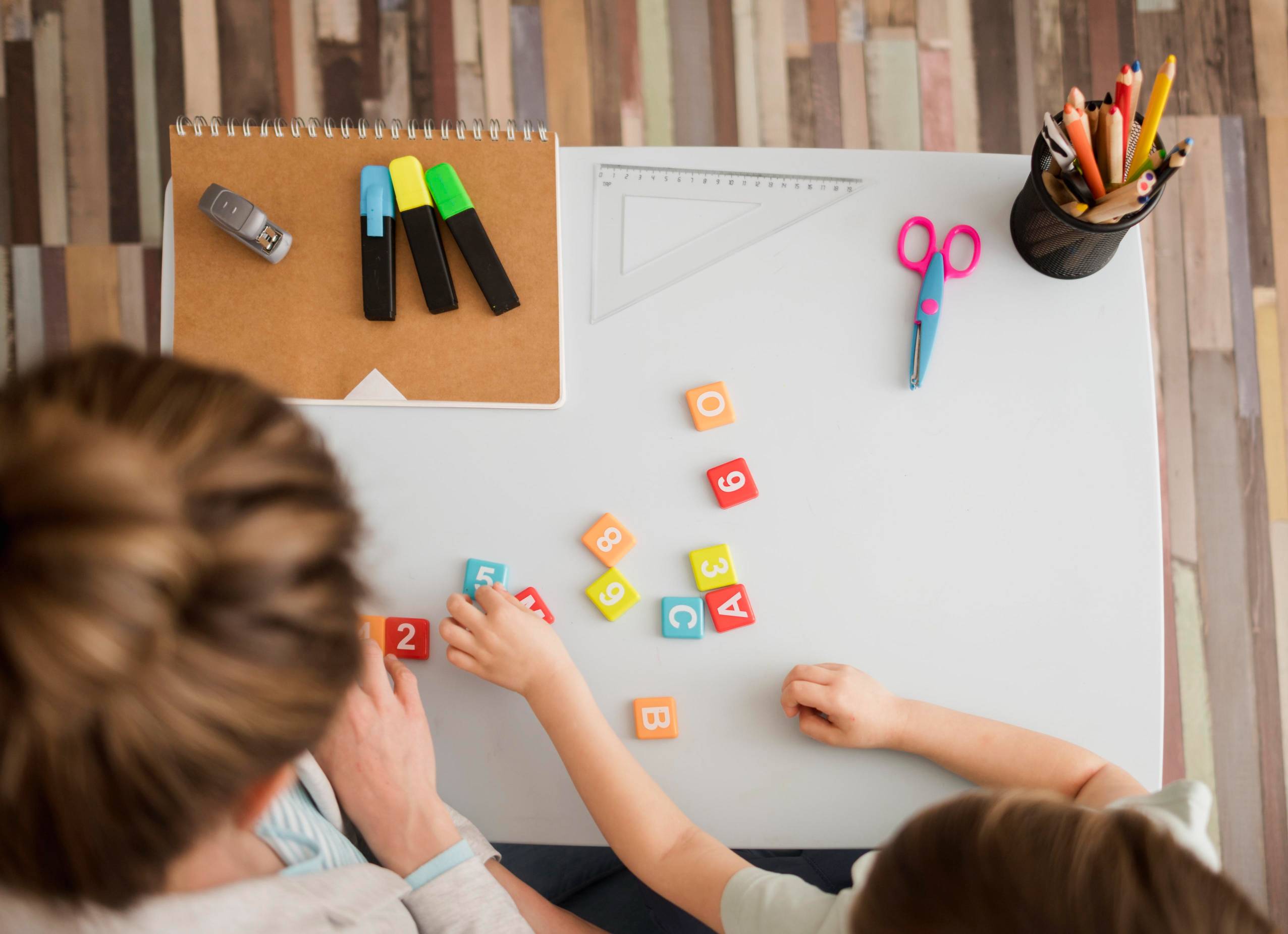Imagine a bright, colorful classroom in the heart of Bangalore, buzzing with the vibrant energy of young minds at play. Little Arjun, four years old, with a sparkle in his eyes, reaches for the same toy as his classmate, Rahul. A moment of potential conflict, a learning opportunity. But this isn’t just any preschool; it’s Kara4Kids, a place where social emotional development activities for preschoolers is the heartbeat of every interaction. Here, Arjun learns to express his feelings and understand Rahul’s perspective. With gentle guidance from their teacher, both children learn a lesson in sharing and empathy – skills just as crucial as academic prowess.
In a world where academic achievements tend to overshadow overall development, the importance of social emotional learning, that too in early childhood, cannot be overstated. SEL is the process through which children understand and apply the knowledge, attitudes, and skills which are needed to know and manage various emotions, set and achieve positive goals, feel and show empathy for others, create and maintain positive relationships, and make responsible decisions.
What is Social Emotional Learning (SEL)?
Social Emotional Learning (SEL) is an important factor when children start with their early childhood education. It plays a critical role in giving preschoolers an overall development. The core of SEL comprises helping preschoolers understand and manage their emotions, feeling and showing empathy for others, being able to create new relations, and make decisions by themselves.
In the vibrant, exploratory stages of preschool, these skills are more than just educational objectives; they are the building blocks for a well-rounded, emotionally intelligent individual. Implementing SEL in preschools is not merely about academic learning; it’s about nurturing young minds to recognize and express emotions, engage in empathetic interactions, and navigate social complexities with grace and confidence. It is in their early stage that preschoolers get a strong foundation for their future relations, professional success, which is why SEL is not something to be overlooked in the early childhood education stage.
5 Key Components of Social Emotional Development for Preschoolers
- Self-Awareness : This is the foundation of SEL, and when it comes to preschoolers, it is about recognizing and being able to name their emotions, understand what are their preferences and capabilities, and what is their impact on others. There are social emotional development activities for preschoolers like ’emotion cards’ or ‘mirror games’ that help them to identify and articulate feelings like happiness, anger, or sadness. This is a critical self-awareness phase as it is when the groundwork is laid for emotional intelligence, instilling self-confidence and later social interactions.
- Self-Management: This component focuses on helping children regulate their emotions and behaviors. It is about teaching them how they can be calm when they feel upset, have control on their impulses, and tackle challenges with patience. Techniques like deep breathing, counting to ten, or using words to express feelings are often employed. Mastering self-management for kids in preschool acts makes a strong positive impact on future academic success and overall well-being.
- Social Awareness : Being socially aware helps children to empathize with others, makes them understand different perspectives, and respects different backgrounds and cultures. Role-playing and storytelling are two of the best ways to impart these abilities. Nurturing social awareness in preschoolers helps in developing compassion and them becoming more inclusive, which are necessary qualities to be learned from early childhood.
- Relationship Skills : Preschool is often where children first learn to build and maintain healthy relationships outside their family. Skills such as sharing, taking turns, listening, cooperating, and communicating effectively are emphasized. With different social emotional development activities for preschoolers for a group and collaborative play, kids get to practice these skills in an effective way.
- Responsible Decision-Making : Even at a young age, children can learn to make thoughtful, constructive choices. It all comes down to comprehending what’s right and wrong, respecting other people, and being aware of the effects of their actions. With the use of guided play and decision making opportunities in a safe environment, kids in preschool are able to practice making choices.
Importance of Social Emotional Development Activities For Preschoolers
- Fostering Emotional Intelligence: SEL in preschools is instrumental in helping children identify and understand their own emotions. It teaches them to recognize feelings like happiness, sadness, anger, and frustration, and more importantly, how to express these emotions in a healthy, constructive manner.
- Developing Empathy and Social Skills: Through social and emotional learning activities for kids, they learn empathy, which is the ability to understand and share the feelings of others. Preschoolers are taught to recognize and respect the emotions of their peers, fostering a sense of compassion and inclusivity.
- Enhancing Cognitive Abilities: Research has shown that social emotional development activities for preschoolers has a positive impact on their cognitive development. Kids in preschool are more likely to engage in learning activities, show curiosity and come up with creative solutions when they feel emotionally safe and socially connected. SEL helps in developing attention skills which have a positive impact on academic success.
- Building Resilience and Coping Strategies: Preschool years can be filled with various challenges, from adapting to new environments to dealing with conflicts. With SEL kids in preschool develop resilience and understand coping strategies to handle such challenges. There is a resilient mindset that they develop which will help them in their future journey.
- Preparing for Future Success: SEL benefits are not just limited to preschool years. The skills that one acquires through SEL set a foundation for lifetime. Children who have participated in SEL programs tend to have better academic performance, healthier relationships, reduced emotional distress, and lower rates of antisocial behavior. They are better prepared to face any challenges, and adapt to changing environments.
Kara4Kids: A Model for SEL in Early Education
Emphasis on Emotional Intelligence
At Kara4kids the importance of emotional intelligence is understood and best methods are adopted to nurture children’s ability to understand, use, and manage their emotions.
Social Emotional Learning Curriculum
There are traditional educational approaches where there is separation between emotional learning and academics. But at Kara4kids, social emotional learning curriculum is integrated into their daily tasks in a way that they are constantly engaged with social emotional learning activities for preschoolers that promote not just emotional but cognitive development as well.
Developing Empathy and Social Skills
With interactive and collaborative activities, children at Kara4Kids learn to empathize with others, which is important while developing social skills and to form healthy relations.
Fostering Self-awareness and Self-regulation
Kara4Kids places a strong emphasis on helping children understand their emotions. Children’s ability to control their emotions, handle stress, and adjust to different social circumstances is greatly influenced by their level of self-awareness.
Creating a Safe and Supportive Environment
The learning environment at Kara4Kids is designed to be safe, inclusive, and nurturing. It encourages children to express themselves freely, explore their emotions without judgment, and seek support when needed.
Building Resilience and Positive Self-image
Through consistent emotional support and positive reinforcement, Kara4Kids aids in building resilience in children. They learn to face challenges with a positive attitude and view failures as opportunities for growth.
Encouraging Mindfulness and Emotional Balance
Programs at Kara4Kids often include mindfulness practices, which help children achieve emotional balance. With these practices anxiety is reduced, there is improved concentration, and overall well-being is improved.
Parental Involvement and Education
Recognizing the crucial role of parents in a child’s emotional development, Kara4Kids actively involves parents in the SEL process. Workshops and communication channels are established to educate parents on social and emotional learning and how to reinforce these learnings at home.
Continuous Evaluation and Improvement
Kara4Kids regularly assesses the effectiveness of its SEL programs. With an ongoing evaluation it is ensured that the strategies are relevant and effective, as well as adjusting to the emotional and educational needs of kids in preschool, which are constantly evolving.
Preparing for Future Success
By focusing on SEL, Kara4Kids equips children with essential life skills that go beyond the classroom. Skills such as empathy, self-regulation, and resilience are important for personal and professional success in future.
SEL as a Foundational Pillar
Social Emotional Learning (SEL) does not just play the role as an educational tool ; it is a foundational pillar that shapes the future of our society. Through its integration in early childhood education, as exemplified by the efforts of institutions like Kara4Kids, SEL transcends traditional learning paradigms. With social emotional learning activities and interactive play, children develop social responsibility, empathy, and emotional intelligence. These skills will help them succeed academically and overcome challenges in the future. At Kara4kids children get a well-rounded development, with skills that make them confident individuals in the future.
As we continue to recognize and embrace the transformative power of social and emotional learning activities for kids , we are not only preparing our children for school but are indeed setting the stage for a more emotionally intelligent, socially conscious, and empathically connected generation. With SEL a path for the future is created where emotional well-being and social responsibility is given utmost value as they are the cornerstones of success and happiness.

